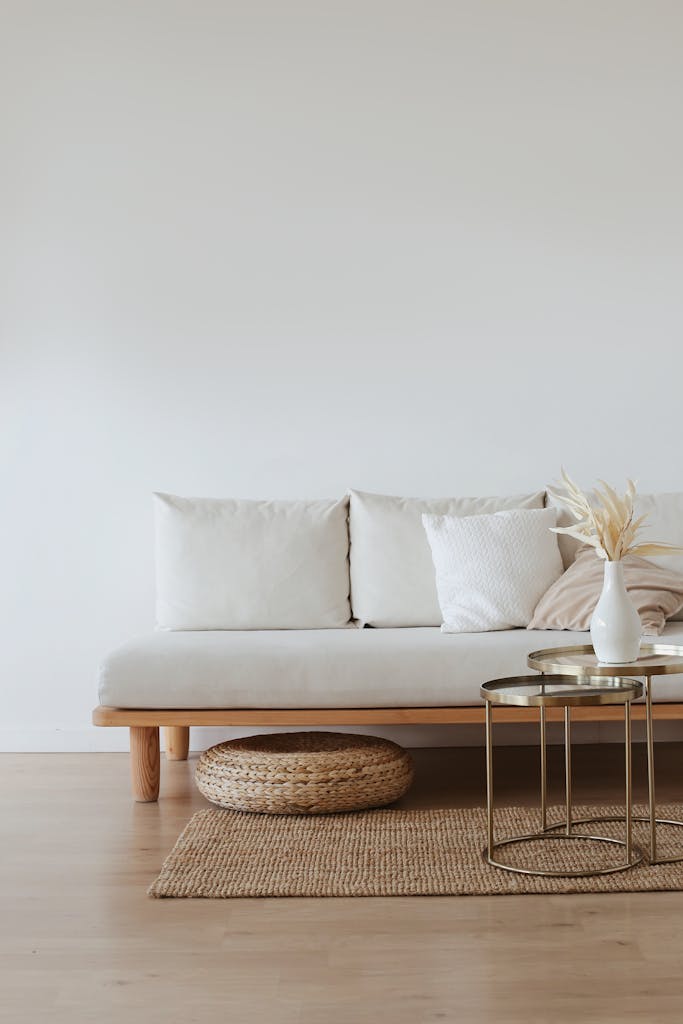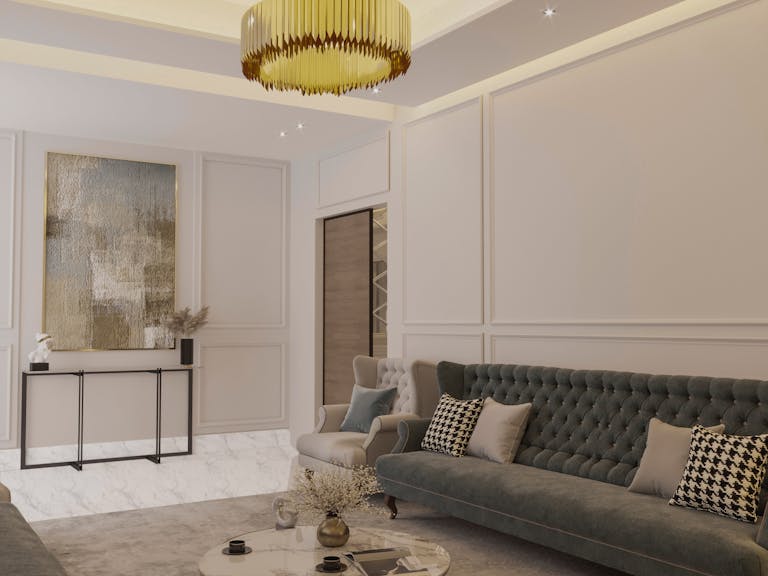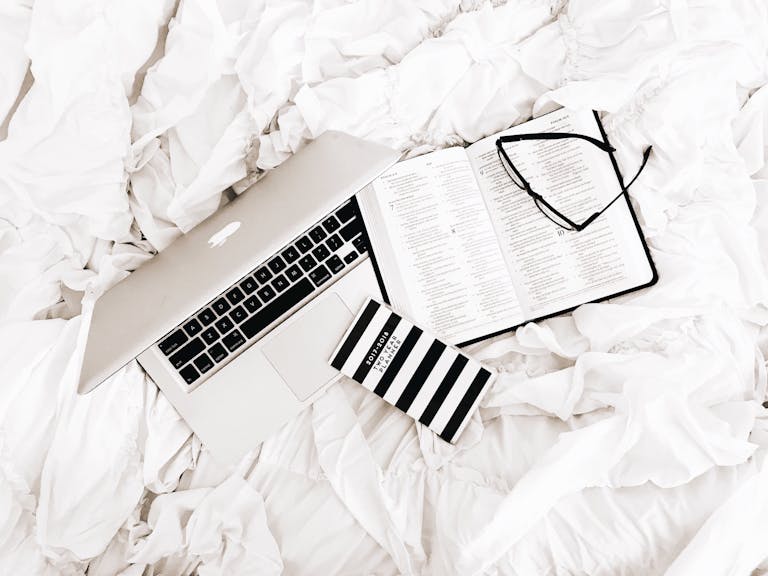In this post, I’ll explain what it means to live minimalistic, why you should try it, and how to get started if you decide you want to.
Minimalism and simple living have become more and more popular in recent years. Instead of wanting everything, people are choosing to live minimalistic and only hold what they need. There is so much unnecessary stress added to our lives when we have more than we need, so minimalistic living only makes sense.
What Does It Mean To Live Minimalistic?
Have you ever gone shopping and seen something you really liked but knew you didn’t need? Do you recall that voice in your head saying: I don’t really need that, nor do I have somewhere to put it. Well, we’ve all been there, and part of minimalistic living is wanting and buying less. If you don’t need it, why buy it, right?
In Break/The/Twitch, A. Ongaro writes, “Minimalism is defined as a design or style in which the simplest and fewest elements are used to create the maximum effect.” He goes on to say that while minimalism had its origins in the arts, it has recently become “representative of a lifestyle that aims to remove clutter from all facets of life.“

Does Minimalism Mean I Can’t Have What I Want?
Some people worry that once they decide to live a minimalistic life, they can no longer buy the things they want. They think they can’t buy nice clothes, home decor, or kitchen supplies. That’s simply UNTRUE. While you want to try and avoid buying so much unnecessary stuff, you do not have to forgo buying things completely.
The end goal is to be more intentional with your buying. Instead of buying things on impulse, wait at least 2 weeks – 1 month before making the purchase. Odds are, once you reach the 2 week mark, you won’t really care to buy the item anymore and you saved the money. This is how I’ve slowed down my spending and purchasing, and it’s made such a difference in my life.
Another idea to help you from spending money on impulse is the Paycheck Rule. The Paycheck Rule is where you take the price of the item you want to buy, and you see how many hours you’d have to work to earn that money back. If you make $17.00 an hour and the item costs $50.00, you’d have to work three hours to pay for it! Is the item worth it?
Why Should You Live A Minimalistic Life?
Aside from the obvious (you save money!), there are several other reasons you should consider living a minimalistic life. In such a consumeristic world, it can be hard not to feel pressured to buy this or that to stand out. Maybe you don’t even feel pressured, you just find “good deals” and decide you need whatever is on sale because it fits you and looks cute.
How many of these can you relate to? You:
- Go to Hobby Lobby and see a specific niche of decor is for sale, and it’s 50% off! So – as someone who loves a good bargain, you buy several pieces. (One point for me – I’ve done this.)
- You’re in your favorite store when you see a sign that says “BUY ONE, GET ONE”, and you decide to do just that even though you don’t need either of the items you’re getting to begin with. (Another point for me.)
- Go to a local event and see someone giving away freebees, so you decide to take some EVEN THOUGH you don’t. Need. It. (Ugh – another point!)
Living minimalistic can rid you of those unessential buys, which in turn helps you save money and space. It’s a great way to start removing clutter from your life all together. Another reason is you won’t be so stressed out all the time about all the junk you have. Physical clutter leads to mental clutter, and I mean that. A clutter free home equals a clutter free mind. Also, the less stuff you have, the less you have to worry about organizing, cleaning, and getting rid of down the road.

In summary, minimalism allows you to:
- save money
- be less stressed
- stay organized
- save money
- less maintaining
How Can You Start Living More Minimal?
C. Carver, author of How To Become A Minimalist: A Little Guide To Living with Less in the blog Be More With Less gives a multitude of ways you can start living a more minimalistic life. One of the first tips she gives is to start asking questions. “Figure out why you want to simplify.” she writes. “My why was health. Your why may be different.” What is the reason you want to be more minimalistic? Are you wanting to save money, avoid stress, or something else?
Another tip she gives is to start small. She talks about the power of taking small steps rather than trying to completely change your life overnight. She writes, “Instead of downsizing overnight to move into a tiny home, start by keeping a box by the door for odds and ends that don’t matter to you. Start by cleaning out your pantry or a corner of your closet.”
I really enjoyed her post on this topic, so I highly recommend checking it out for more ideas. Before you do, though, here are a few tips of my own to help you start your minimalism journey!
Set A Budget
I almost don’t want to include this tip because I know people struggle with it so much already that it isn’t the most helpful. If you’re good at budgeting, though, use that to your ability to practice minimalism. By making a budget and keeping it, you’re ensuring you’ll spend your money more wisely and less loosely. You’ll do a little more thinking before swiping your card, which will result in less impulse buys.
Create Goals
There are many different goals you can set to help you become better at minimalism. Goals for you to set could include:
- Decluttering your space room by room, one week at a time to reduce stress,
- Prioritize experiences over physical items,
- Adopt the “less is more” mindset,
- Prioritize YOUR WELLBEING
These goals will put you one step closer to becoming more minimalistic.
By Versatile Clothes
You want to make sure you have several pieces that can be mixed and matched to make a multitude of outfits. This saves you from buying a lot of extra clothes, which saves closet space and reduces laundry loads (which reduces stress and labor!). By choosing interchangeable clothing, you are putting yourself ahead of the game by eliminating several negative factors.
I’d love to hear your thoughts in the comments. Let me know why you want to practice minimalism and if this article was helpful.







What a wonderful article, I love the idea of keeping a box by the door for all that long time unused stuff. Decluttering definitely affects you at all levels, sometimes even a small thing like washing windows or getting rid of old clothes lifts your spirits to new heights. I’ll let you know how it goes with the box 🙂